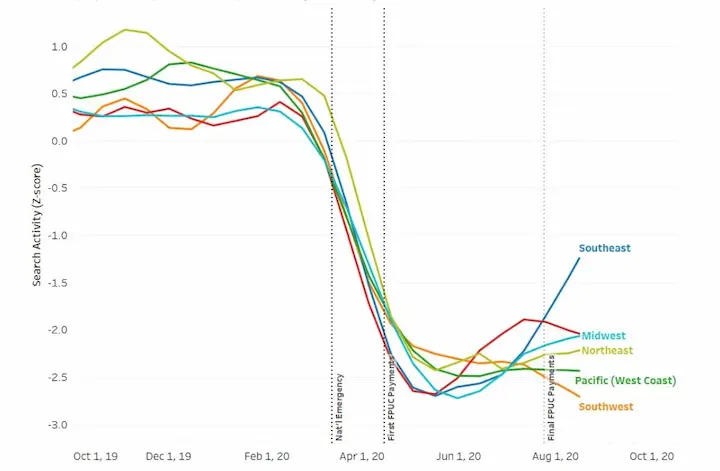Payday loans have become a popular source of short-term credit for individuals in dire need of cash. Borrowers find payday loans appealing due to their easy accessibility and fast approval process. Still, they have high-interest rates and fees that trap borrowers in cycles of debt if they are not able to manage it properly.
Many states have implemented regulations on payday loans to protect consumers from predatory lending practices. Each state has its own set of laws governing payday loans, including maximum loan amounts, interest rates, and repayment terms. You must understand the regulations in your state if you’re exploring the idea of a payday loan.
Familiarizing yourself with such regulations enables you to make an informed decision on if a payday loan is right for you and avoid falling into financial hardship. PaydayDaze explores the regulatory landscape surrounding payday loans across different states in the US to help you better navigate such loans and protect yourself financially.
Overview Of Payday Loan Regulations
Payday loans are short-term, high-interest loans due on the borrower’s next payday. Their high-interest rates and fees make it difficult to pay back and lead to a cycle of debt for borrowers. Many states have implemented regulations around payday loans in response to concerns about predatory lending practices. Such regulations vary by state but include loan terms, fee restrictions, and credit counseling or financial literacy education requirements for borrowers.
Various states offer resources such as budgeting tips and debt management programs to help borrowers avoid getting trapped in the payday loan cycle. The average payday loan borrower is in debt for five months of the year, spending an average of $520 in fees
to repeatedly borrow $375, according to the Pew Charitable Trusts.
| Type of Loan | Payday Loan |
|---|---|
| Average Debt per Year | $520 |
| Average Amount Borrowed | $375 |
| Average Fee per Two Weeks | $55 |
| Loan Term | 2 weeks |
| Borrower Requirements | Checking account and income |
| Borrower Income | $30,000 per year |
| Percentage of Borrowers Struggling to Meet Monthly Expenses | 58% |
State-By-State Regulations
Payday loan regulations vary from state to state and include limits on loan amounts and caps on interest rates. Each state regulates payday loans to protect consumers from predatory lenders and maintain responsible lending practices.
Loan Amount Limits
Loan amount limits are a key part of state-by-state regulations regarding payday loans. Such caps vary from state to state and range from $300 to $1,500, with a few states having no limit.
It’s worth noting that repayment terms vary depending on your state. Lenders do not review credit scores when determining how much money you’re eligible for. Most lenders only require proof of income or employment as their main criteria for a fast loan approval. You must research state laws before applying for a payday loan. Doing so lets you decide if such lending is right for you without risking financial hardship.
Interest-Rate Caps
Interest rates are a key factor determining how much money borrowers must eventually repay. Interest rate caps vary depending on your state and range from 15% to 400%, as with loan amount limits. High-interest rates trap individuals in a debt cycle where they struggle to repay their loans while being subjected to late fees and other penalties. Consumers must understand their state’s guidelines regarding interest rates before applying for a payday loan to avoid being caught up in the vicious cycle of debt.
Potential Consequences Of Payday Loans
Payday loans lead to financial insecurity as borrowers use them to cover short-term needs, such as emergency bills, that quickly spiral out of control. Payday loans create debt traps when borrowers are not able to repay the loan in full and on time, leading to extra fees and high-interest rates. The interest rates associated with payday loans are much higher than other forms of credit, making it difficult for borrowers to repay the amount they owe.
Financial Insecurity
Financial insecurity is a major concern for individuals exploring payday loans. The high-interest rates and fees associated with such loans lead borrowers to fall further into debt, exacerbating their financial troubles.
It severely damages their credit score, making it difficult to access other forms of credit if the borrower defaults on their loan payments. It becomes a vicious cycle where the borrower takes out more loans to cover previous ones, leading to insurmountable debt levels.
Seeking debt relief or credit repair services is necessary, but only after carefully reviewing all available options, as they come at an extra cost. Individuals must weigh the potential consequences before obtaining payday loans and explore alternative solutions that better suit their financial needs.
Debt Traps
Another potential consequence of obtaining a payday loan is falling into a debt trap besides financial insecurity. Borrowers find themselves in such a situation when they continuously obtain loans to cover the cost of previous ones and end up with insurmountable debt levels. It has severe implications for their credit score, making it challenging to access other forms of credit in the future.
Individuals must explore alternative solutions that align better with their financial needs before obtaining payday loans. Seeking professional help such as debt consolidation or credit counseling services is necessary. Still, you must only use it after carefully reviewing all available options as they have extra costs.
High-Interest Rates
Another potential consequence of obtaining payday loans is their high-interest rates. It accumulates large amounts of interest and fees, leaving individuals in a perpetual state of debt. Payday loans have an Annual Percentage Rate (APR) of over 400%, making it difficult for borrowers to pay back their debt on time, forcing them into a cycle of continuously rolling over their loans or borrowing new ones.
Budgeting tips are insufficient to get them out of such a situation without seeking professional help from credit counseling services or reviewing alternative options like personal loans or borrowing from friends and family members. Borrowers must carefully review all available options before falling victim to the debt cycle caused by predatory lending practices.
Considerations Before Taking Out A Payday Loan
Payday loans seem like a quick fix to financial problems, but borrowers must review the potential consequences before obtaining such a loan. Responsible borrowing must be your top priority if you decide a payday loan is necessary. Here are a few budgeting tips to know.
- Make a monthly budget and stick to it
- Avoid unnecessary expenses
- Save money when necessary.
Credit counseling provides valuable assistance in managing debt and improving financial literacy. Borrowers must know that resources are available for people struggling with debt management, including non-profit organizations and government programs. Utilizing such resources and practicing responsible borrowing habits enables individuals to work towards achieving long-term financial stability without high-interest payday loans.
What Information To Provide For A Payday Loan
Borrowers must provide certain information to qualify when applying for a payday loan. They must follow the below simple process to obtain a payday loan.
- The lender requires proof of income, employment, and identification, such as a driver’s license or passport.
- The borrower must provide banking information so the lender deposits funds directly into their account.
- The borrower must carefully review the terms and conditions of the loan agreement, including interest rates and repayment options. Payday loans are associated with high-interest rates and short repayment periods, which lead to a debt trap if not managed properly.
Alternatives To Payday Loans
Payday loans seem like a quick fix for financial troubles, but alternative options are available that help protect assets and avoid falling into debt.
- One such option is to improve financial literacy by seeking credit counseling or taking courses on personal finance management.
- Debt consolidation effectively combines multiple debts into one manageable payment plan with lower interest rates.
- Budgeting tips relieve financial stress. They include creating a realistic spending plan and reducing unnecessary expenses.

Conclusion
Borrowers must understand the regulations for payday loans in their state. Many states have strict laws to protect consumers from predatory lending practices, and others have more relaxed regulations that lead to financial distress. Understanding regulation guidelines helps borrowers make informed decisions about their finances while avoiding the potential consequences of payday loans.
You must review all options before obtaining a payday loan and carefully review the terms and conditions. Researching and comparing lenders saves you from falling into debt traps with high-interest rates and fees. Exploring alternative options such as credit counseling or seeking assistance from family and friends provides better long-term solutions.
Frequently Asked Questions
What is the maximum loan amount allowed for payday loans in my state?
Maximum payday loan amounts vary widely by state, typically ranging from $300 up to $1,000 for first-time borrowers or limited to a percentage of the borrower’s income.
What is the maximum finance charge or interest rate that payday lenders can charge in my state?
Interest rate caps range from 10-30% in states with lower regulations to over 600% APR in less restrictive states. Check your state banking department website.
Does my state cap the number of payday loans I can take out at one time?
Some states prohibit multiple simultaneous loans, while others allow 2-4. Check your state laws or the database your state uses to track payday lending and prevent excess borrowing.
What is the maximum loan term length for payday loans in my state?
Maximum payday loan terms range from 7 days up to 1 month typically. Some states require longer minimum terms, up to 180 days, to make payment more affordable. Verify your state’s specific term limits.
Does my state prohibit back-to-back or rollover payday loans?
About half of states ban rollovers or require a cooling-off period between consecutive loans. Check if your state prohibits back-to-back loans through the same lender to protect borrowers.

